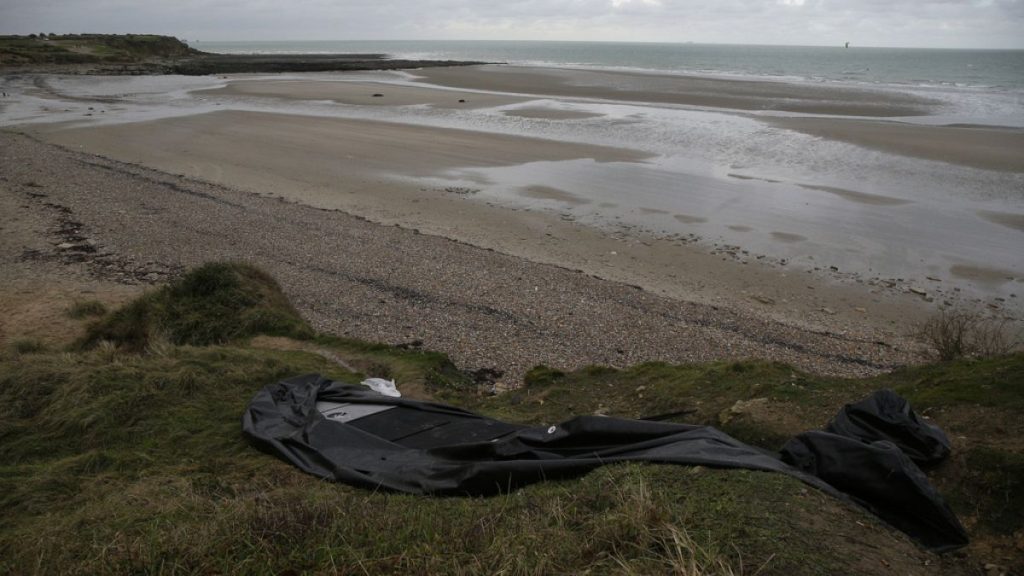The English Channel, a deceptively narrow stretch of water separating the United Kingdom from continental Europe, continues to be a tragic stage for the aspirations and desperation of migrants seeking refuge and a new life. The early hours of a Sunday morning recently witnessed another heartbreaking incident, claiming the lives of at least three individuals who perished in the frigid waters while attempting the perilous crossing from northern France. The unfolding drama involved a frantic rescue operation mounted by French authorities, including emergency services and a navy helicopter. Amidst challenging conditions, rescuers battled against time and tide to pull approximately 50 people from the treacherous waters and the shores near Sangatte. While many were saved, the efforts to revive three unconscious individuals proved futile, adding to the grim toll of lives lost in pursuit of a better future.
The tragedy highlights the persistent dangers inherent in this perilous journey. The English Channel, one of the world’s busiest shipping lanes, presents a formidable challenge to small, often overcrowded boats used by migrants. Navigating these waters in precarious vessels, frequently ill-equipped for the journey and exposed to the elements, puts lives at extreme risk. This latest incident underscores the urgency of addressing the underlying factors driving individuals to undertake such hazardous crossings. The incident also raises questions about the efficacy of current measures to prevent these tragedies, and the support systems in place for those who are rescued.
The attempted crossing occurred amidst a surge in similar endeavors as the year draws to a close. Officials have observed a significant increase in the number of migrants risking the Channel crossing in recent days, suggesting a growing desperation or a perceived window of opportunity. The day before this tragic event, UK authorities reported the arrival of 322 migrants in six boats, highlighting the scale of the ongoing migration flow. While the reasons behind the recent spike remain unclear, a number of factors could be contributing, including improved weather conditions providing a false sense of security, increased pressure from smugglers exploiting vulnerable individuals, and a perceived urgency to cross before stricter measures are potentially implemented.
This year has marked a particularly deadly period for migrants attempting the perilous voyage between France and England. The Channel crossing has become a focal point in the ongoing migration crisis, witnessing a tragic increase in loss of life. Despite concerted efforts by both French and British authorities to stem the flow of clandestine crossings, the route continues to function as a major smuggling corridor. Driven by a range of motivations, including escaping conflict, persecution, and dire economic circumstances, individuals risk their lives in hopes of reaching British shores. The continued loss of life underscores the need for a more comprehensive and humane approach to addressing the root causes of migration and providing safe and legal pathways for those seeking refuge.
The allure of the UK for many migrants is multi-faceted. Language proficiency, existing family ties, and a perception of easier access to asylum and employment opportunities contribute to the UK’s appeal as a destination. However, the reality often falls short of expectations. The asylum process can be lengthy and complex, and access to employment opportunities is not always readily available. Furthermore, the journey itself is fraught with danger, and the risk of exploitation by smugglers is ever-present. The perceived benefits of reaching the UK are often outweighed by the perils of the journey and the challenges awaiting those who make it ashore.
This tragedy serves as a grim reminder of the human cost of the ongoing migration crisis. While political rhetoric often focuses on border security and preventing irregular migration, the loss of life in the English Channel calls for a more compassionate and comprehensive approach. Addressing the root causes of migration, providing safe and legal pathways for asylum seekers, and fostering greater cooperation between nations are essential steps towards preventing further tragedies in this perilous stretch of water. The international community must work together to ensure that the human rights and dignity of all individuals, including migrants and refugees, are protected. The journey across the Channel should be one of hope, not despair, and a collective effort is required to make this a reality.














